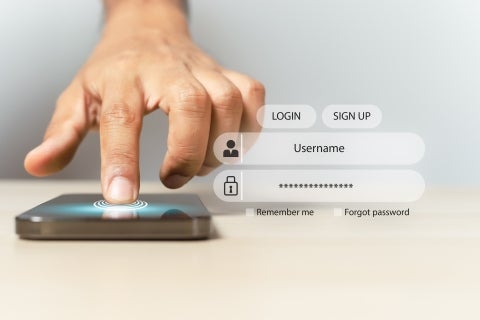Have You Fallen Victim to These Cyberattacks?

As digital technologies become more prevalent in people's lives, cybersecurity protects networks, devices, and data from damage, loss, or unauthorised access. Just as physical security serves to protect a building and its inhabitants, cybersecurity safeguards digital technologies and their users from digital threats.
Society is more technologically dependent than ever before, and there is no sign that this trend will slow down any time soon. In today's dynamic business landscape, one cannot ignore the fact that technology adoption is crucial to ensuring a company hits its goals. This underscores the growing importance of cybersecurity.
With new cyber threats emerging almost daily, is it important for digital users to be able to detect and identify common threats so as not to fall victim.
Most Common Cyberattacks
Phishing
Phishing attacks often come in an email that seems legitimate at first glance. These harmful emails tend to create a sense of urgency or contain a threat that causes the receiver to panic and comply quickly with the instructions inside, such as providing credit card details, without checking the authenticity of the email.
Spear Phishing
Unlike normal phishing, which creates a sense of fear and urgency, spear phishing goes deeper. Attackers take the time to conduct research on their targets to create personal and relevant messages that may look like they came from someone you know, such as your company's management or a friend.
Malicious Spam
Spam is usually unsolicited and unwanted emails sent in bulk, including many promotional emails. Once a spam email has caught your attention, you might click on an unverified link that leads to harmful malware being installed into your system.

Password Attack
This is when a hacker tries to guess your password with a combination of names, numbers, hobbies, and dates that are important to you. Attackers may also use specialised applications that scan a list of common words that many people use in their passwords.
Traffic Interception
The objective of this attack is to shut down a system so that users can’t access it. Then, hackers read and intercept the information shared through unsecured Wi-Fi or unencrypted network connections.
IP Spoofing
IP spoofing is used by an attacker to convince a system that it is communicating with a known, trusted entity, and provide the attacker with access to the system. The attacker sends a packet to the target host with the IP source address of a known, trusted host rather than the attacker's own IP source address in order to entice the target host to accept the packet, allowing the attacker to gain access.
SQL Injection
This is a type of cyberattack that exploits vulnerabilities in web applications to inject malicious SQL code into the database. This code can view, delete, or modify data in the database. SQL injection attacks can also take control of the server or carry out other malicious activities.
How Does Cybersecurity Keep You Safe?
If you're still wondering how cybersecurity benefits not only the average digital user, but also entire organisations, read on to find out the importance and benefits of having solid cybersecurity in place:
Protects Personal Data
Personal data is one of the most valuable commodities for both businesses and individual users. A simple cyberattack can jeopardise the data and privacy of employees, organisations, and customers.
Cybersecurity also protects data from potential internal threats, whether accidental or malicious, helping ensure smooth operations.
Brand Trust and Reputation
Business reputation can be hard hit when data breaches occur due to cybersecurity weaknesses, resulting in customers' loss of trust in a company.
A good cybersecurity system can prevent such setbacks. For example, technologies such as cloud security and network security can strengthen the authentication process. With cybersecurity implemented properly, brand loyalty and customer retention become more secure.
Enhances Productivity
As technology evolves, so do cybercriminals' attack methods.
Viruses and attacks targeting organisations can impact workflows, networks, functionality, and productivity. This leads to unnecessary downtime while the organisation fixes the issue. Organisations can boost their cyber defences by using virus scanning systems, improving firewalls, and automating backups to greatly reduce downtime and violations.

Cybersecurity is no longer something that companies and everyday digital users can compromise on. This means there are a wealth of exciting job opportunities in cybersecurity that are in high demand and pay well.
Do you think this is the right field for you? Let Singapore Institute of Management launch your cybersecurity career forward with our Graduate Certificate in Cybersecurity Management (E-Learning), where you’ll learn the key skills required in an increasingly digitalised world.
Schedule a call with our Student Advisors today to get a free, no-obligation eligibility check!





